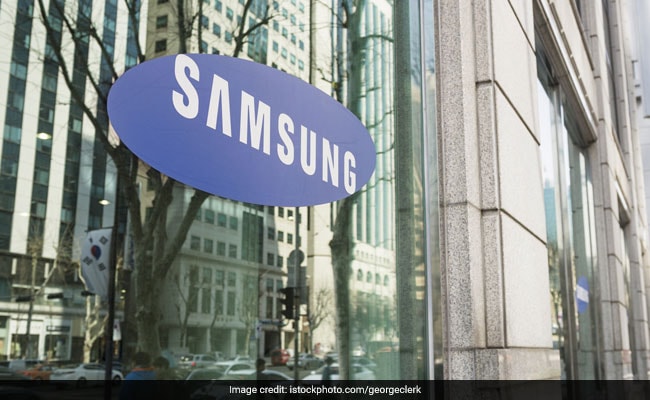
Just a few months ago, Samsung Electronics Co. looked poised to benefit from the global AI boom: profits were soaring and its stock was headed toward all-time highs. Now, South Korea’s largest company has become an example of how quickly fortunes can change in an industry where those who maintain a technological edge suffer losses.
As concerns grow that the company is losing out to smaller rival SK Hynix Inc. in AI memory and failing to gain an edge over Taiwan Semiconductor Manufacturing Co. in outsourced chipmaking, Samsung shares fell 32% from this year’s peak on July 9. Have gone. The company lost $122 billion of market value in that period, more than any other chip maker worldwide.
Samsung has promised a major overhaul to regain competitiveness, but international money managers including Pictet Asset Management Ltd. and Janus Henderson Investors SP Ltd. are not convinced that a turnaround will happen in the near future. Foreign investors have sold about $10.7 billion worth of South Korean company shares on a net basis since the end of July.
“Over the past few months we have reduced our position in Samsung by more than half – it was the largest position in our strategy in July,” said Sat Duhra, portfolio manager at Janus Henderson Investors SP in Singapore. While Duhra said the shares come at an attractive valuation, he has “no intention” of buying them at the moment.
fading fast
Smartphones and other consumer electronics still make up the largest share of Samsung’s sales, but semiconductors have been contributing the most profit in recent years. With the recent crisis in its chip business, the Suwon-based company issued a rare apology to investors earlier this month for the disappointing results.
The company’s story highlights how AI is a major driver of winners and losers in today’s chip sector. While foreign investors have fled Samsung, Nvidia Corp. has become one of the world’s largest companies. TSMC, the major maker of chips designed by Nvidia and Apple Inc., has added more than $330 billion in market value this year.
Things turned bad fast for Samsung. Its stock hit a record high after it reported a 15-fold rise in operating profit for the June quarter. As recently as August, investors were optimistic that it could win more business by supplying high-bandwidth memory to Nvidia to work with AI processors.
That hope has been dashed after the company admitted delays with its latest-generation HBM chips in early October, shortly after SK Hynix said it had begun mass production. Meanwhile, U.S. rival Micron Technology Inc. is also stepping up efforts in HBM, and has reported strong demand for its offerings.
Young Jae Lee, a London-based senior investment manager in the global emerging markets high-dividend team at Pictet Asset Management, said Samsung is “losing its technology leadership in the semiconductor business.” “Technology leadership is by nature difficult to achieve in the short term,” he said, adding that the company is reducing its Samsung stake.
management issues
In addition to its lag in AI memory, Samsung has struggled with a years-long, costly effort to close the gap with TSMC in the foundry business. Like Intel Corp. — which has run into similar difficulty with plans to expand its outsourced chip manufacturing operations — the Korean firm is now looking to cut jobs and make other efforts to stem the bleeding.
Samsung is holding a conference call on Thursday after releasing detailed third-quarter earnings. Amid ongoing uncertainty over the company’s leadership, points to watch include a possible management reshuffle before the end of the year.
Jay Y. Lee – the grandson of Samsung’s founder, who was appointed executive chairman two years ago – was acquitted of stock manipulation charges in February after years of legal issues. Three months later, the company unexpectedly replaced its semiconductor division chief with memory chip veteran Jun Young-hyun.
Management may have its work cut out for it trying to bring back investors, even though the stock’s valuation is at a record low and technical indicators are showing oversold signals.
“We don’t think much is changing with Samsung executives and engineers leaving the company,” said Park Jinho, head of equity investments at NH-Amundi Asset Management Co. in Seoul. Park downgraded Samsung to neutral at the end of the second quarter and replaced it with SK Hynix.
(Except for the headline, this story has not been edited by NDTV staff and is published from a syndicated feed.)

